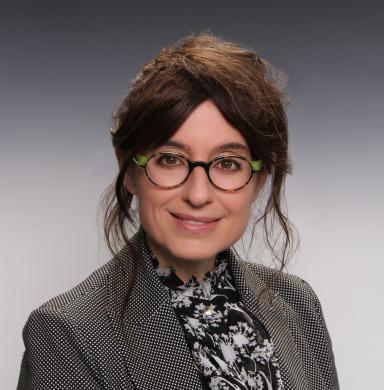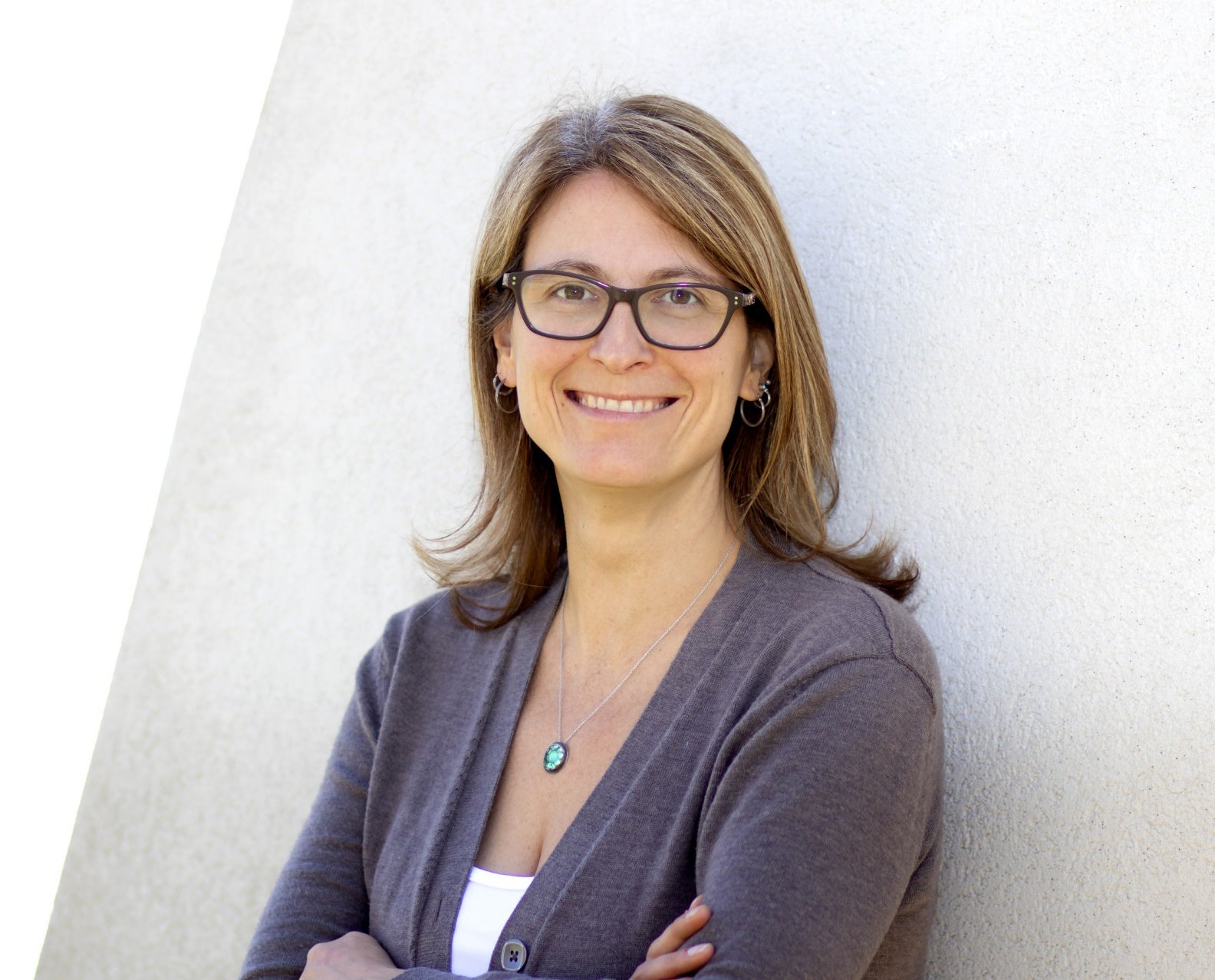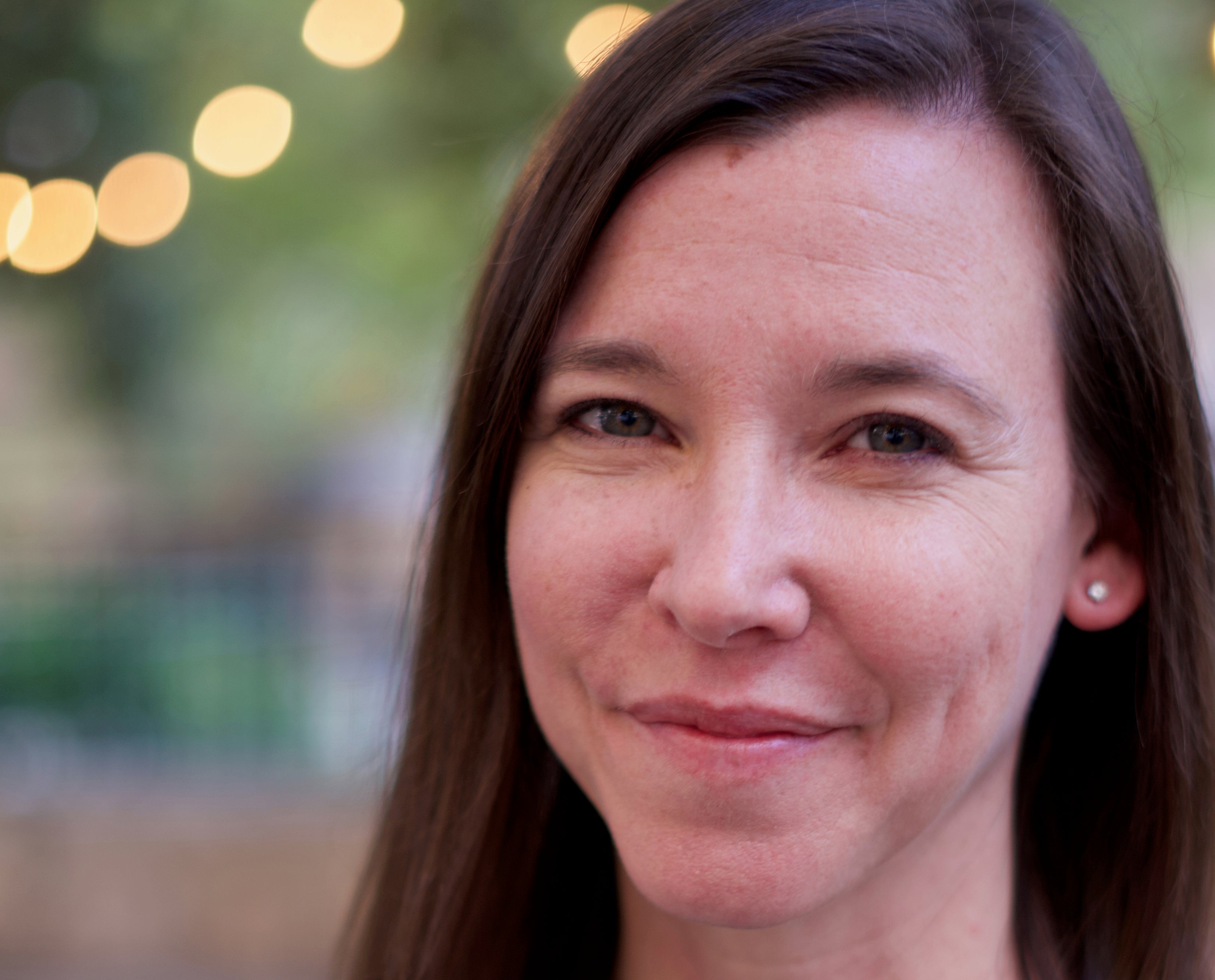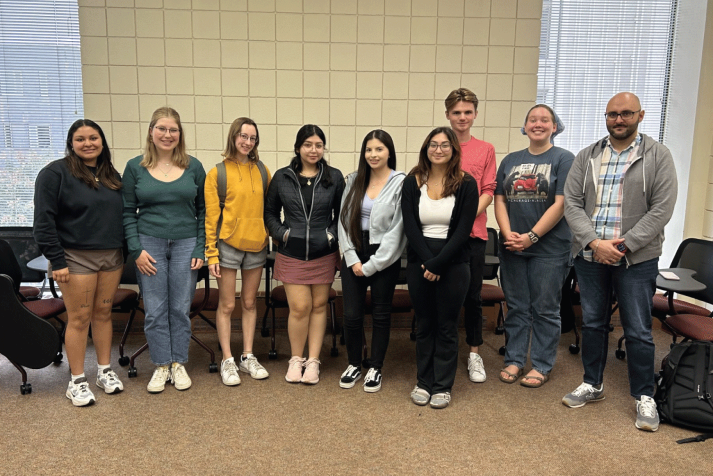CAHSS Professor Cultivates Spiritual Community, Bridging Divides
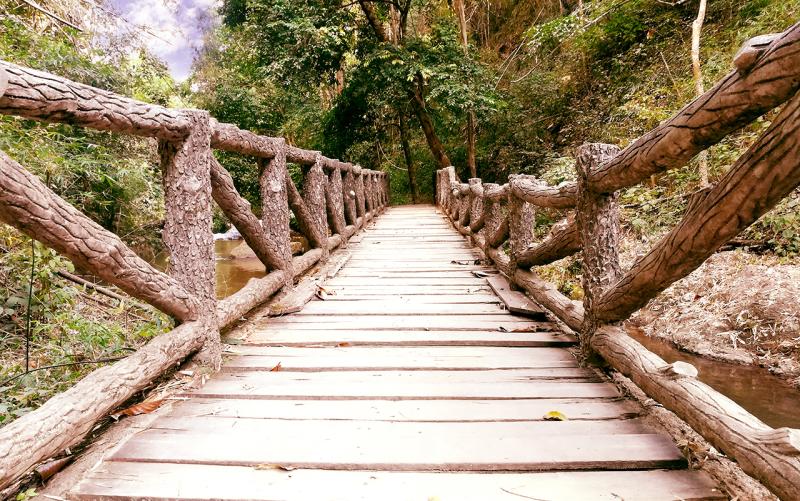
When she wasn’t playing teacher as a child, Philosophy Professor Sarah Pessin had fun riding her bike around her Brooklyn neighborhood, savoring the multi-cultural and religious vibes. She also enjoyed studying science and writing poetry, seemingly unrelated passions that finally came together when she took her first philosophy class in college.
“When I discovered philosophy, it was a light bulb moment for me,” she said. “It was everything I loved about the exacting work of biochemistry plus all the imaginative play of creative writing. I still think of philosophy that way.”
Pessin went on to earn a PhD in philosophy in 2000 from The Ohio State University, where her dissertation homed in on theories of goodness and theories of the universe in Greek, Islamic and Jewish thinking.
Following post-doctoral work at the University of Chicago, she landed a position at the University of Denver teaching in the College of Arts, Humanities & Social Sciences’ Department of Philosophy and the Center for Judaic Studies. “It was very exciting to be able to teach about religion from a philosophical perspective,” she said.
According to Pessin, “hard hope” acknowledges the uncomfortable challenge of “looking out for another person we don’t want to break bread with, inquiring into what that would mean and how that would work. It’s a call to face neighbors from a stance of radical possibility that calls for a kind of healing even when you can’t just hug it out.”
Meeting Deep Differences with Hard Hope
In her research and classes, Pessin explores themes of democracy, religious inclusivity, racial justice and intercultural bridge building. Her work focuses on a project she calls “hard hope” that strives to find a more thoughtful, ethical approach to interacting with people across “deep difference,” perhaps best understood by what it is not.
“Hard hope is neither rancor nor rainbows, neither about erasing nor embracing those who are different from ourselves,” she explained. “It’s a complicated place for which we lack words — I’m using ‘hard hope’ as a place holder.”
According to Pessin, hard hope acknowledges the uncomfortable challenge of “looking out for another person we don’t want to break bread with, inquiring into what that would mean and how that would work. It’s a call to face neighbors from a stance of radical possibility that calls for a kind of healing even when you can’t just hug it out.”
Hard hope promotes self-inquiry into how to practice a complicated style of activism. Pessin references the writings of Gloria Anzaldua, “whose idea of ‘spiritual activism’ invites us to elevate justice while also elevating each person,” Pessin said. “It’s a soulful and intense teaching that invites us to heal social inequities while also healing ruptures with neighbors — even if they are responsible for the problems we are working to fix.”
Pessin’s evolving journey into hard hope permeates the various classes she teaches in which she draws on the relevant work of different philosophers and thinkers from across a variety of backgrounds and cultures.
“My students have opened up some very good questions and conversations about what it means to be an activist operating without hard hope versus with it,” she said, reflecting on her recent class on coexistence. “It’s about wrestling to face our structures, our neighbors and ourselves all at the same time. It makes every decision harder, but it also invites better futures.”
The practice is equally applicable to politics and our personal lives. “Whether it’s a family member, a roommate or neighbor, pausing to ask the question of ‘how do I interact with this person even when I don’t like them or agree with them?’ can at times offer a bit of a miracle,” she added.
Nurturing an Interfaith Academic and Spiritual Community
The longstanding University of Denver Interfaith Chair recently assumed the new part-time role of Director of Spiritual Life for Student Affairs and Inclusive Excellence at DU, a position Pessin views as a great match for her research, teaching and leadership experience.
“I have decades of background working on existential and ethical wellness as well as interfaith and intercultural bridge building,” she said. The new position involves developing interdisciplinary opportunities to nurture innovative spiritual learning and creative endeavors among students, faculty and staff.
The Director of Spiritual Life role also connects to the 4D program, focused on fostering wellbeing and character development while providing a multifaceted education that prepares students to contribute to the greater good.
“The new role is inclusive of everyone from existentially engaged atheists to spiritual seekers to religious people from a range of backgrounds,” Pessin said. “It aligns with 4D goals and encourages thinking about broad meaning making and seeking interfaith opportunities for fostering hard hope.”
Specific endeavors include the spiritual supper club launched in spring 2024. “Students get to cook amazing cultural and religious foods under the great guidance of Fritz Knoebel School of Hospitality Management Chef Tim Downs,” she said. Later in the day, the food is served at a reception open to students, faculty and staff campuswide.
Sharing Diverse Traditions and Spiritual Growth
“During supper club we activate what we’re calling spiritual storytelling where we invite people to share their traditions around the food being served or food from any spiritual tradition they engage with,” Pessin added.
Through the Interfaith Calendar project, Pessin trains staff in university departments on religious inclusivity and how to activate digital interfaith calendar options in Outlook and Google calendars.
When asked how her own spirituality has evolved over the years, Pessin responds that “My religious, spiritual, ethical and hard hope work has always been intertwined. It’s a blessing to integrate that more deeply over time into my career and personal life.”
